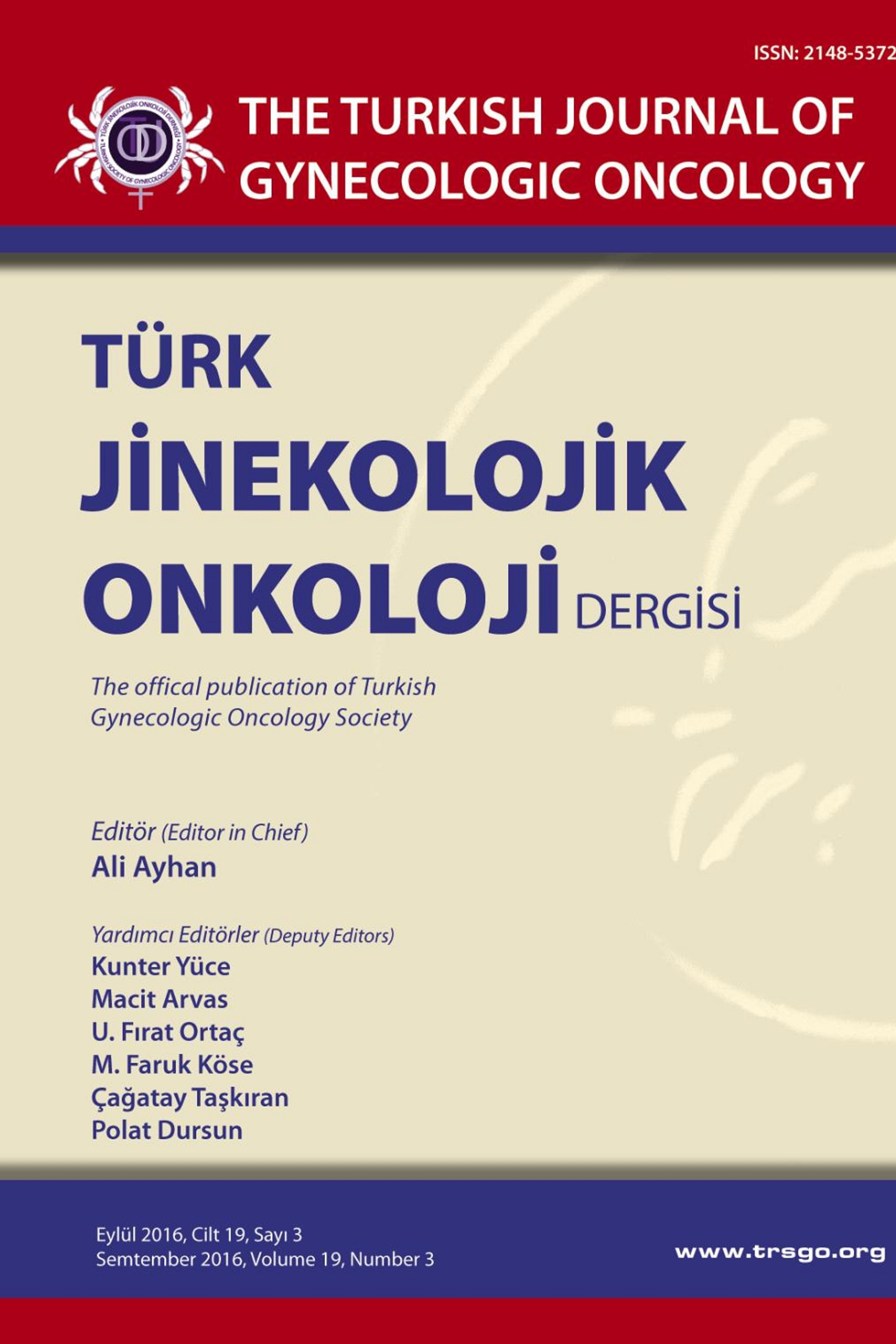TÜRK KADINLARINDA JİNEKOLOJİK KANSERLERDE METİLENTETRAHİDOFOLAT REDÜKTAZ GEN MUTASYONUNUN ETKİSİ: ÖN RAPOR
Giriş: Jinekolojik kanser tanısı almış Türk kadınlarında Metilentetrahidrofolat Redüktaz enzim gen mutasyonunun etkisinin saptanması Materyal ve Metod: Haziran 2008 ve Ocak 2009 tarihleri arasında kliniğimize başvuran ve ilk kez over, serviks ve endometrium kanseri tanısı alan hastalarda en sık görülen MTHFR mutasyonları için (C677T ve A1298C) genetik olarak incelenmiştir. Sonuçlar: Şu ana kadar 62 tanı almış endometrial, servikal veya ovarian kanserli kadın genetik olarak incelendi. 62 kadından 56'sında (%90,32) en az bir MTHFR mutasyonuna rastlandı. Bu 62 hastadan 8 ‘inde (%12.9) homozigot C677C mutasyonu , 20 ‘sinde (%32,25) heterozigot C677C mutasyonu ,12'sinde (%20,9) homozigot A1298C mutasyonu, 25'inde (%40,32) heterozigot A1298C mutasyonu saptandı. Yorum: Şu ana kadar elde ettiğimiz veriler ışığında MTHFR gen mutasyonu ve jinekolojik kanserler arasında sıkı bir bağlantı olduğu düşünülmektedir. Türkiye'deki bu konu hakkındaki veri eksikliğine rağmen jinekolojik kanserli hastalarda MTHFR için %90,32 gibi yüksek bir oran dikkat çekicidir. Çalışmanın etkinliğinin arttırılması için hasta sayımızı arttırmayı planlamaktayız. Bu sunumumuz planladığımız çalışmanın ön sonuçlarıdır.
Objective: To determine the influence of MTHF gene mutation in gynecological cance in Turkish Women Popultion Material and Method: We perform genetic analysis for MTHFR 677 and 1298 gene mutation in patient who admitted to Zekai Tahir Burak Women Health Educational Hospital Oncology Department between June 2008 to January 2009. In this department de novo diagnosed cervical, ovarian and endometrial carcinoma patients were included to this study. Results: So far 62 patients diagnosed with cervical endometrial and ovarian carcinoma is investigated for mutations. 56 of the 62 patients (%90,32)have at least one mutation. 8 of 62 patients (%12,9) have homozygous C677T mutation %32,25 patients have heterozygous C677T mutation 12 of 62 patients (%20,9) have homozygous A1298C mutation and 25 of 62 patients (40,32) have heterozygous A1298C mutation . Canclusion: According to the resuts we obtain so far there has been a strong relationship with MTHFR mutation and gynecological cancers. Eventhough there is limited data of the incidence of the gene mutations in Turkey our data shows that there is a interestingly high incidence as %90,32 for at least one mutation in cancer patients. We designed this study for a higher patient population so they were the early results of the study.
